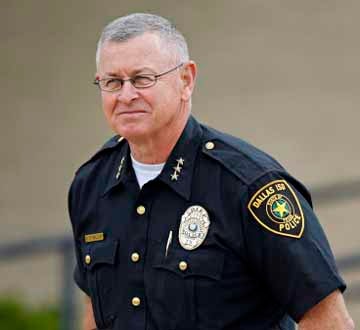School-Based Law Enforcement Residency Program
Get expert guidance on making the right school-based law enforcement choices for school employees, students, and communities.
The tragic rise in school violence, along with recent legislative mandates, has districts across Texas exploring school-based law enforcement (SBLE) programs. To support our members in making the right choices for their employees, students, and communities, the Fund launched an SBLE residency program.
The residency program represents a focused, deep dive into SBLE. Collaborating with respected subject matter experts, we're delivering resources and training that help school leaders understand SBLE programs and identify the associated risks and budget implications.
Resources
We're pleased to offer some residency program products to all schools. Other products are reserved exclusively for our members at no charge. Bookmark this page and visit often for the latest guidance and best practices.
School Safety and the Confidentiality of District and Student Information FAQ
Divulging sensitive details pertaining to school safety measures and protocols could accidentally compromise school district security (login required).
Does Your Workers' Compensation Coverage Apply to District Peace Officers?
Administrators should understand how secondary employment and on-call status could impact workers' compensation coverage for district peace officers.
Ask These Law Enforcement Personnel Coverage Questions Before an Incident Happens
Schools should understand their coverage, memorandums of understanding, and board policies as they relate to law enforcement personnel.
Special Overtime Rules for Police Officers
Special provisions exist to allow public sector employers flexibility around overtime for police officers, but to remain competitive, most educational entities do not apply the provisions.
Safety Personnel Staffing
This TASB HR Services article explains your options for complying with the HB 3 requirement that each campus have an armed security officer during regular school hours.
School Marshals and Other School District Personnel Carrying Firearms
Explore factors that school districts should consider before allowing employees to carry firearms on campus under the marshal or guardian plans.
Key Takeaways from SBLE Summit
Get tips on complying with HB 3, partnering with local law enforcement, leveraging TEA services, and implementing the right SBLE program for your district.
FAQs About Armed Security Officers
This TASB Legal Services resource answers common questions about HB 3’s requirement that an armed security officer be present on every campus.
School-Based Law Enforcement Experts
Our subject matter experts bring decades of experience in school-based law enforcement, school administration, and school security consulting.

About Craig
Chief Miller started his law enforcement career in 1982 with the Dallas Police Department. He retired from Dallas PD in 2011 as a Deputy Chief of Police after working patrol, vice, computer crime analysis, narcotics, SWAT, bomb squad, canine, mounted patrol, and as Homicide Commander.
As Homicide Commander for the eighth largest U.S. police department, Chief Miller oversaw 750 murder investigations. After retiring from Dallas PD, he became Chief of Police for the Dallas ISD Police Department, managing 220 personnel who provided safety and security services for the nation’s 14th largest public school system. Chief Miller retired from Dallas ISD in March 2019.
He has since worked as a school safety consultant for large and small school district administrators, specifically working with districts starting their own police departments. Chief Miller is included in the Texas School Safety Center Consultant Registry, allowing him to assist districts with safety audits and vulnerability assessments.

About Leigh
Dr. Wall retired from Santa Fe ISD in August 2021 after 43 years in education. She spent 18 years teaching at elementary, middle, and high schools in Louisiana and Texas before serving as a middle/junior high and high school principal in South Texas districts.
She then served as Superintendent of Schools for Santa Fe ISD for 14 years. While in that role, Santa Fe High School experienced a tragic school shooting in 2018, when 23 individuals were shot and 10 lives were lost. Dr. Wall shares her experiences to assist educators, school resource officers, and school administrators across the country. She is committed to ensuring healthy, safe, and successful schools for students, staff, and communities.
Dr. Wall has a Master of Science in Education from Louisiana State University, a Doctorate in Educational Leadership from Walden University, and an Educational Mid-Management Certification from the University of Houston.

About Lisa
Chief Womack began her law enforcement career in 1992 with the Arlington Police Department, where she held multiple positions, including Assistant Chief of Police. She also led the APD school services division in partnership with Arlington ISD. Chief Womack then spent 10 years serving as Chief of Police in Sugar Land, Texas; Elgin, Illinois; and Lakeland, Florida.
As Commissioner with the Commission on Accreditation for Law Enforcement Agencies (CALEA), Chief Womack chaired the task force that reviewed and updated the CALEA best practices in policing standards, which have been adopted by accredited police agencies nationwide. She also served as an Executive Committee member with the International Association of Chiefs of Police for four years.
Chief Womack earned a bachelor's degree in criminal justice from Texas Woman’s University and a Master of Public Administration from the University of North Texas. She also holds a Master Peace Officers certificate from the Texas Commission on Law Enforcement, as well as law enforcement certifications in Illinois and Florida.
